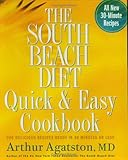 Schuyler’s Monster
Schuyler’s Monster
by Robert Rummel-Hudson
Get it at Amazon.
Sometime in late 2006 or early 2007, I stumbled across the blog of one Robert Rummel-Hudson, and quickly became engaged. His writing style is upbeat and candid. He’s funny, but isn’t shy about using the word “fuck” when it’s appropriate, and he’s clearly completely devoted to his young daughter, Schuyler. At the time I first “met” his words, he’d just sold his book, and was beginning the long path to publication. When I re-encountered his work about a week ago, sparked by watching Autism: the Musical on HBO, I found that not only had the book been released, but I’d missed the signing in my local bookstore. (We both live in the same metro area, but my end of it is a good hour or so from his end.)
I was disappointed, but vowed to buy the book anyway. That weekend at Borders, among all the new non-fiction about romance, modern philosophy, and diet pills, I saw the book, Schuyler’s Monster, and it was even an autographed copy. I grabbed it, stopped at Jamba Juice, and headed home to read the entire book in one sitting.
I’m not a parent, nor am I particularly interested in children, and I’m generally one to avoid disabled-kid stories like the plague because they tend to be over emotional and / or horribly fluffy. Schuyler’s Monster is neither. Rather, it’s a love story from a less-than-perfect (and therfore more than perfect) father to his (in his word) “broken” daughter.
Why broken? Because Schuyler, for all she’s a bright and mischievous child, has a neurological disorder that not only compromises her fine motor skills, but also makes her unable to form intelligible speech.
The book is as much about Rob’s reaction to his daughter’s disability, and their journey toward helping her work around it as it is an ode to playful and loving father-daughter relationships. Who wouldn’t want a dad who let you watch monster movies, even if you were really too young? I know I would.
This book was moving, yes, but it’s also funny, sweet, nostalgic, and triumphant. Like Rob’s blog, it’s upbeat and blunt. Unlike Rob’s blog, the word “fuck” isn’t used terribly often, if at all. (I should note, I don’t judge blogs by whether or not people curse. I just believe that if “fuck” is the most appropriate expression of frustration, joy, whatever, cheating on it’s use is, well, cheating. I don’t believe people should ever be afraid of language.)
(And actually he doesn’t use it that often in his blog, either).
Seriously, though, it’s a great book. You should read it for the writing alone, even if you don’t like disbled-kid stories, either.



